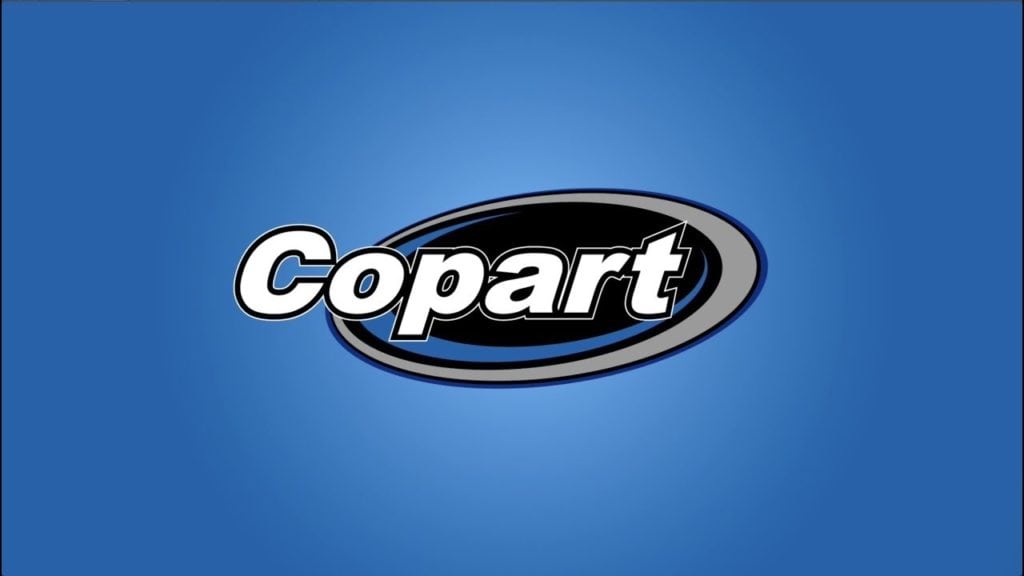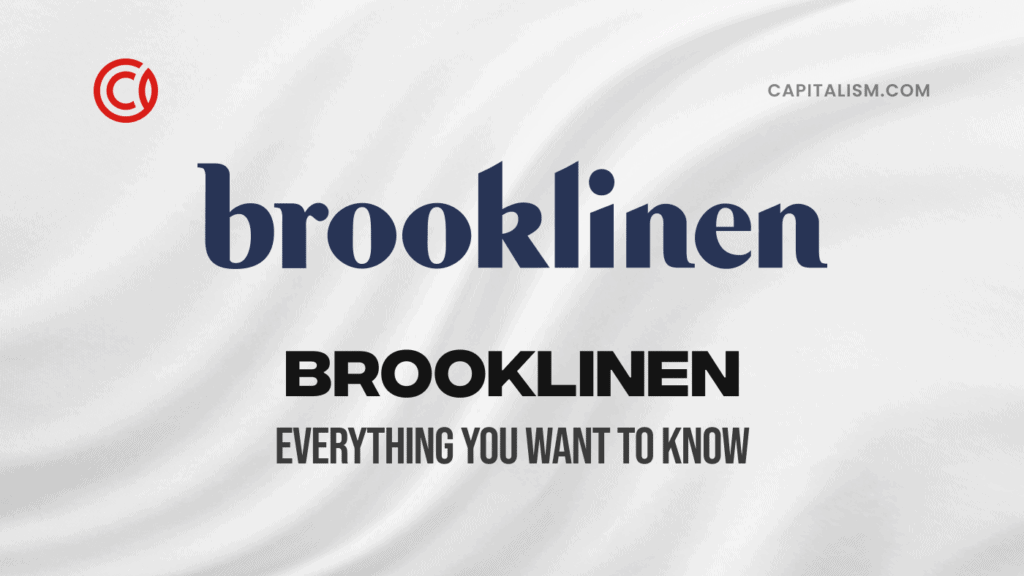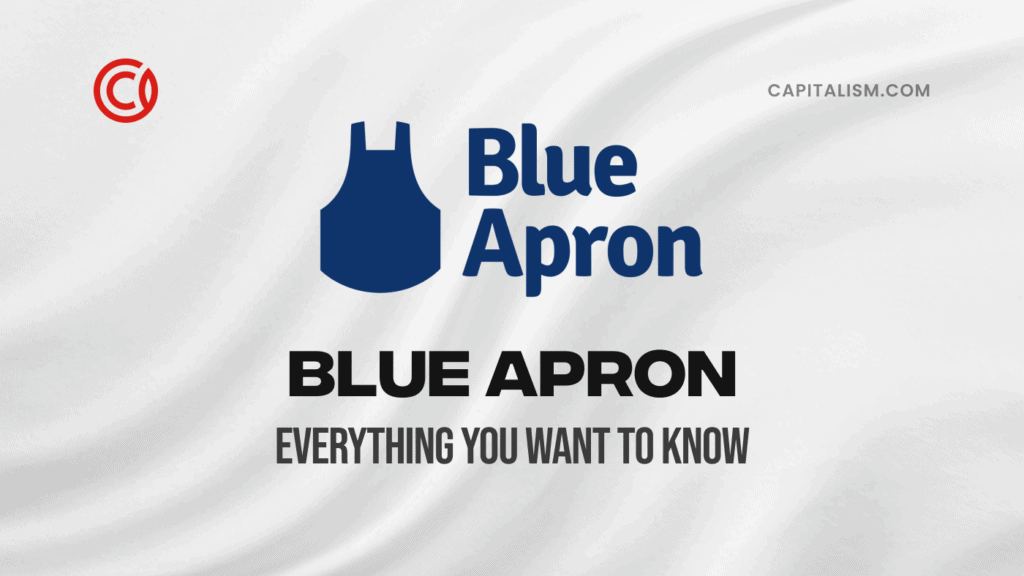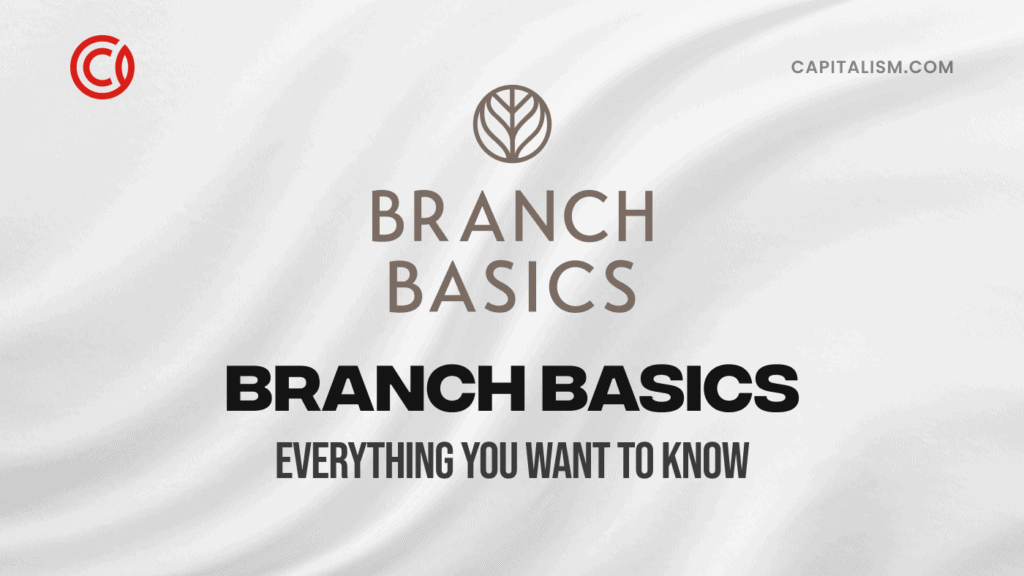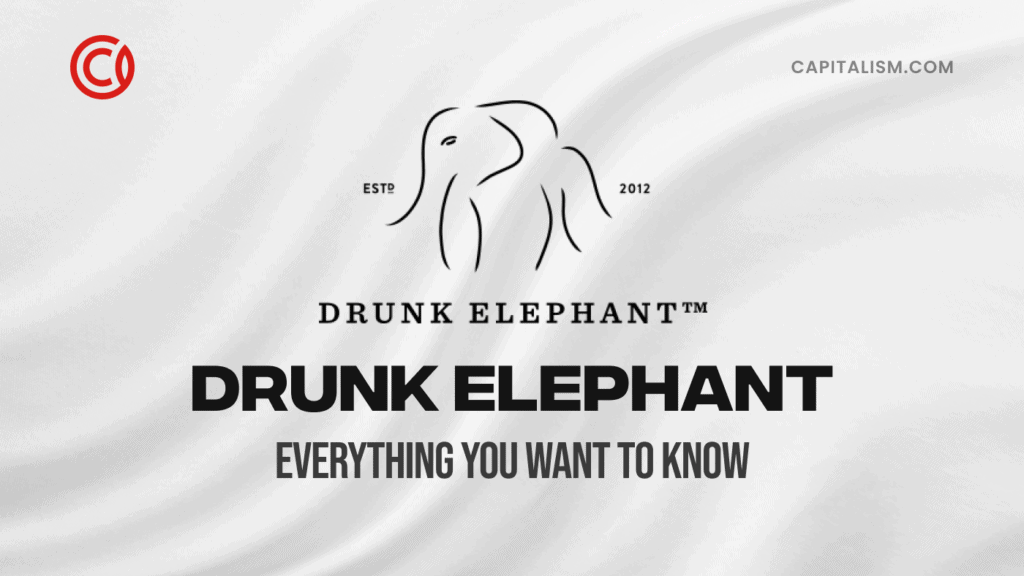He Moved His Family into a 30-Foot Trailer So He Could Launch Copart - Now He's on the Forbes Billionaire List)
Willis Johnson's wife never imagined her husband would move their family into a 30-foot trailer. After all, they had two very young children. But when Johnson sold their home to purchase the small junkyard that eventually became Copart, that's just what he did. The junkyard seemed like a great way to earn a living, and residing on the property would save money.
While most junkyards only average a modest income, Johnson managed to build an auto salvage empire over the next few decades. Today, Copart is an internationally-known auto salvage giant. The brand auctions wrecked cars and parts to buyers across the world.
How did this broke war veteran turn an everyday junkyard into one of the most inspiring bootstrapping stories ever? And how can you follow his simple plan for launching your own business? Read on.
Growing Up with Entrepreneurial Blood
Johnson learned the ins and outs of business ownership from his father. As a child, he saw his dad dabble in a multitude of ventures, from dairy farming to managing restaurants. Johnson and his siblings also ran the businesses out when needed. As he joked in an interview with Tennessean, "He knew how to start a business. When the company got big enough that us kids couldn't do it, he'd put it on the auction block and auction it and start another company."
Although these frequent job changes created a somewhat nomadic lifestyle, his father always earned enough to support the family. And watching his dad's self-driven work ethic also sparked a burning passion for entrepreneurialism inside Johnson.
Shortly after graduating from high school, teenaged Johnson found himself drafted by the Army. He served a brutal year-long tour in Vietnam. After serving, Johnson returned to America with a Purple Heart and a renewed desire to make his entrepreneurial dreams come true.

And nothing would get in his way.
Those who know Johnson say he acts impulsively. He makes decisions quickly and without much thought. Even marriage was a rushed decision. He proposed to his wife, Joyce, a mere ten days after they met. And over 50 years later, marrying her is still one of his best impulse decisions to date.
One Man's Trash Is Another Man's Next Rolls-Royce
Most people don't aspire to own a junkyard. Why would anyone want to deal with trash every single day? But when Johnson purchased his first junkyard in 1982, he saw it as a way to become financially independent.
Salvage yards serve a vital role in the automotive industry. Whenever an insurance company totals a car, it ends up in a scrapyard. There, buyers can pull parts or purchase whole vehicles. There's a demand for this type of business, and there is very little competition.
Johnson wasn't satisfied just being a local scrap dealer, however. He decided to grow that first lot into Copart, a global leader in salvage parts and vehicles. Over the following decades, he acquired other junkyards across the country, reinvented the salvage market, created a never-before-seen vehicle auction website, and built an unwreckable brand.
Buying a business instead of building from scratch can cut your timeline drastically.
Copart Highlights
What kind of company is Copart?
The brand is a leader in online vehicle auctions. The company specializes in used, wholesale, and salvage vehicles.
What does the company Copart do?
The brand holds online auctions for wrecked, salvage, and used vehicles. Sellers include insurance companies, rental car companies, manufacturers, banks, charities, and local municipalities. Potential buyers can view listings on the brand's online auction site.

Who founded Copart?
Willis Johnson founded Copart as a single junkyard in 1982. Today, his son-in-law, Aaron "Jay" Adair, serves as CEO.
Copart's (CPRT) IPO happened in 1994.
Johnson went public to raise capital. And according to Mike Berner for Medium, "Had you invested $10,000 in the Copart IPO, you would be sitting on $1.78 million today."
The company thrived during the pandemic.
Despite the pandemic, Copart hit $2.2 billion in sales in 2020, 18% higher than the previous year.
Is Copart a franchise company?
No. The company owns and operates all Copart locations.
How many Copart locations are there?
There are 243 Copart-owned junkyards globally. Although founded as a small junkyard in California, Johnson relocated HQ to Dallas, TX in 2012.
Launch Lessons from a Former Junkyard Resident
Unlike many others who grace the top of the Forbes World's Billionaires List, Johnson didn't grow up in the lap of luxury. He's a textbook example of an American rags-to-riches tale. How did this once-broke entrepreneur turn a family junkyard into a multibillion-dollar auto salvage empire? He followed these business-savvy steps:
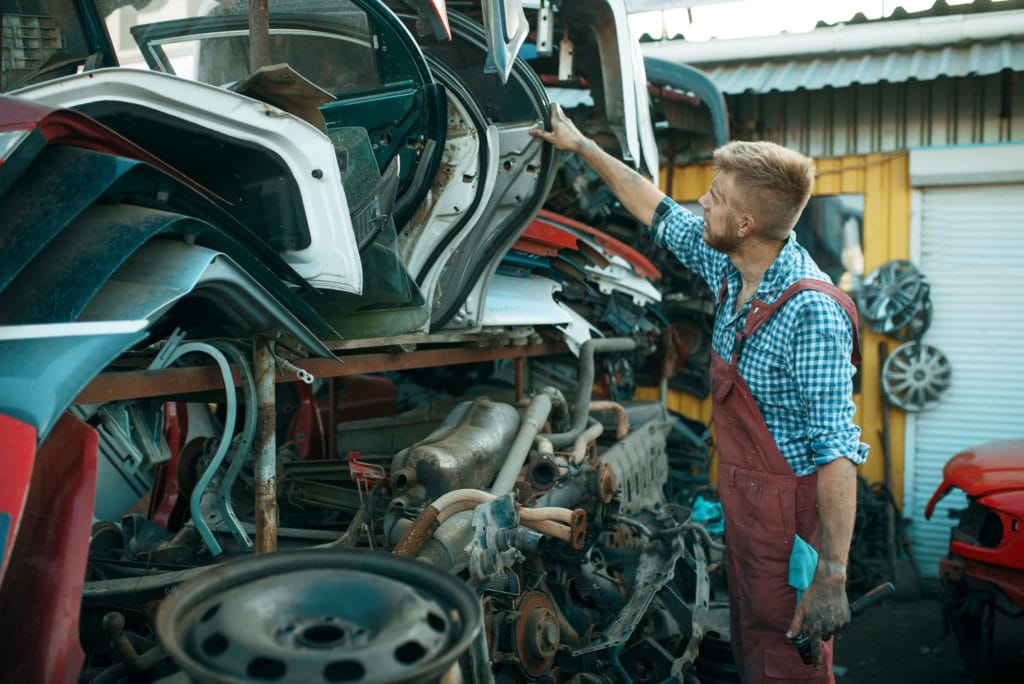
#1: Count Every Penny.
It cost Johnson $75,000 to purchase his first junkyard in 1982. But he didn't have that type of cash stowed away for a rainy day. Instead, he sold his house to fund the purchase and moved his wife and two kids into a 30-foot trailer on the property. While this may seem crazy to the average person, Johnson knew it was a wise investment.
A junkyard would provide a steady income stream for the family. And living on-site would reduce costs. Growing up, Johnson's father instilled the value of a dollar. In his autobiography, Junk to Gold, Johnson recalls hearing his dad say, "Take care of your pennies, and the dollars will take care of themselves." All expenses add up at the end of the day. And even the smallest amounts can make or break a business.
You don't have to be rich to launch a business. But you do need to be cost-conscious. After all, money doesn't grow on trees. Know your budget, set limits, and seek funding as it becomes available. Monitoring all profits and losses from the get-go will put your company on a fiscally responsible track.
#2: Build a Recognizable Brand.
There are junkyards all over the place. But there are only two big hitters in the auto salvage industry: Copart and Insurance Auto Auctions (IAA). And recognizable branding helped Johnson surpass his competitor during every step.
From the beginning, Johnson didn't just want to start a company—he wanted to build a brand. What does this entail? Many entrepreneurs think branding stops at the company name and logo. But it's so much more.
In addition to the Copart logo, every location has the same values, pricing, computer system, and operation methods. Moreover, the brand treats everyone who walks through the doors the same way, whether customers or employees. And according to Copart reviews, this type of branding really works.
Branding is how you want others to view your company. It should show off what sets your business different from the others. And it doesn't take a lot of money to build a recognizable brand that lives up to its name.
#3: Create Multiple Revenue Streams.
The more ways you can generate money for your business, the more likely you'll turn a profit. Johnson took this advice to heart. In the early years, he wanted to design a business model that could produce multiple revenue streams. Where did he get this business-within-a-business idea? Disneyland.
While on a trip to Disneyland, Johnson found himself paying money over and over again. There was a fee to get inside, a price to eat a meal, and another cost to buy souvenirs. And nobody seemed to mind. If anything, they willingly opened their wallets for the experience.
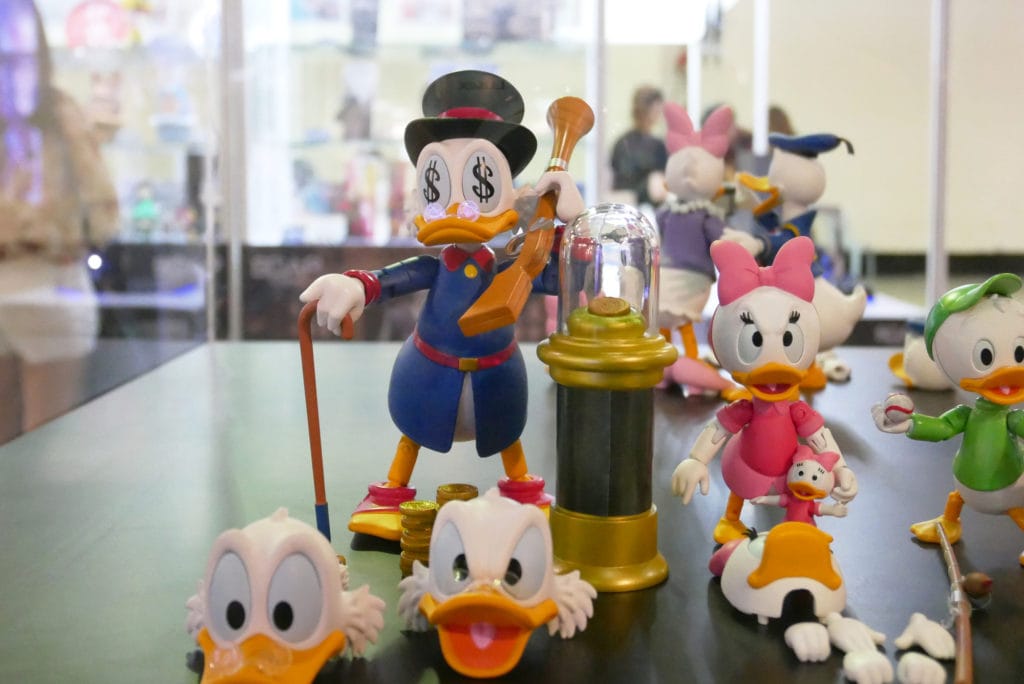
Inspired by this Disneyland model, Johnson decided to create new services within his brand. He began charging an entry fee at his first scrapyard. If customers wanted to pull parts from junked vehicles, they paid an additional cost. Vehicle auctions and a thrift shop that sold the junk left behind in wrecked cars also brought in more money.
Johnson explained the importance of diversifying income in his autobiography. "Every time you add a revenue stream to the same pipeline, the profit margins change drastically. You are putting more through that pipe."
#4: Follow Technology.
Most people don't equate junkyards with technology. What in the world does a high-tech computer system have to do with selling wrecked cars? Aren't paper records enough to appease customers and the IRS? But as it turns out, following the latest technology is why Copart rose to the top.
When Johnson purchased his salvage yard in the 80s, technology was an afterthought. Most small businesses relied on hand-written sales receipts and scribbled inventories. But Johnson decided to up the ante.
He became one of the first in the salvage industry to maintain a digital inventory. It did cost the company about $110,000 for a reel-to-reel computer. Outsiders thought he was out of his mind. But the investment more than paid for itself.
Spending money on the latest technology never scared Johnson. He saw it as a way to make his company more efficient. That first reel-to-reel computer made it easier to oversee the junkyard and maximize profits—a win-win! And any investment that made him more money was a smart one.
Any company that wants to survive today's competitive market must embrace technology. Every industry utilizes technology in one way or another. And flexibility is just as crucial. You can't continue doing things the same way as you did a decade ago. Successful companies incorporate the newest technology as soon as it becomes available. They don't wait for someone else to do it first.

#5: Lead by Innovation.
Innovation is what drives brands to succeed. Every industry has problems, and entrepreneurs must find ways to solve them. But not just any old solution will suffice. Brands must offer something newer and better than what's already out there. And that's what Johnson did.
When Johnson purchased his first junkyard, it wasn't anything revolutionary. If anything, it was common and a bit boring. But he didn't want to live in a trailer forever and became determined to transform his salvage yard into something that would put his competitors to shame.
While everyone else relied on foot traffic to sell vehicles and parts, Johnson decided to explore another avenue—the internet. He launched an online bidding platform back in 1998—just on the heels of eBay. No one had toyed with the idea of selling vehicles or parts online. But it's just what customers wanted. Initially, Johnson hoped online auctions would account for 10% of Copart's sales. Today, it accounts for nearly 100% of sales.
Existing in a duopoly meant always trying to one-up IAA. Going online gave Johnson a competitive edge and an international presence. Funny enough, it took IAA another 12 years to copy Copart's model—a colossal mistake for IAA but a major win for Johnson. As Johnson revealed in his book, "I built Copart's culture on change and embracing new ideas."
Want to launch a business that goes viral almost instantly? Innovation is your best friend. Allow yourself time to brainstorm new ideas and think outside the box. Do whatever it takes to stay one step ahead of your competition.
#6: Go Big. Go Recession-Proof.
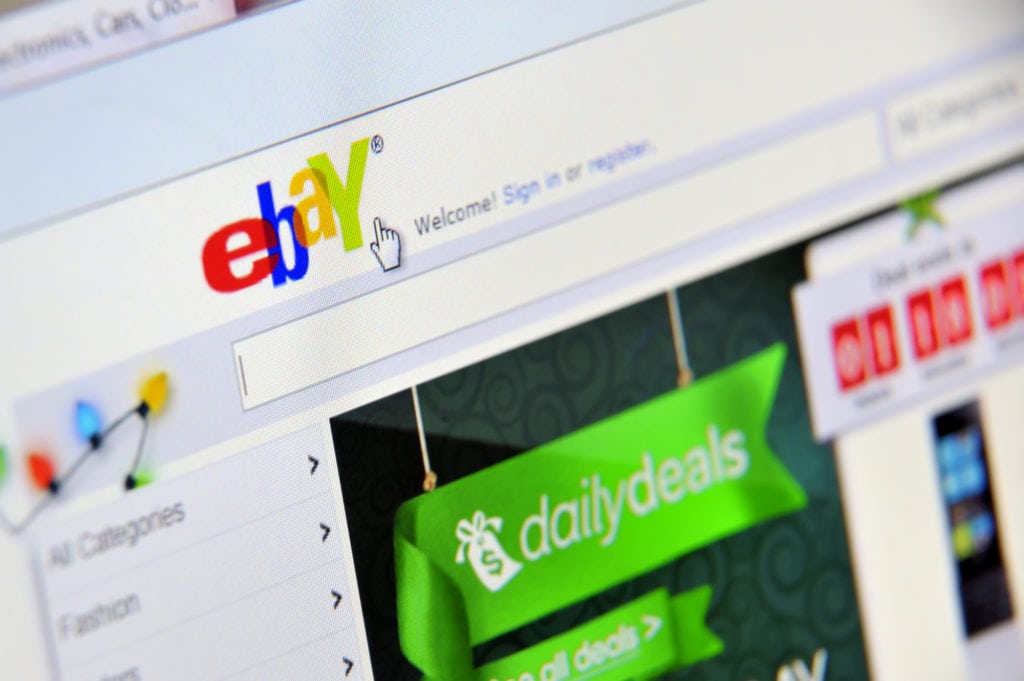
The economy is a heartless lover. It teases with your emotions, delivering promising highs and gut-wrenching lows. Unfortunately, not every brand can overcome a recession. But Johnson managed to survive and thrive in two. What's his secret?
Johnson believes the salvage industry is recession-proof. During the financial crash of 2008, the price of used vehicles also reached record lows. Ironically, this also made it cheaper for insurance companies to total cars. Insurance agents were more likely to dump slightly damaged vehicles at junkyards. Johnson filled his lots with cheap inventory, but he collected more in fees.
This past year, the pandemic had the opposite effect. Since people drove less during 2020, there were fewer accidents. Insurance companies didn't have as many totaled vehicles to send to Johnson. But Copart was able to charge more for the cars it did receive. A supply decrease caused an increase in prices.
According to Johnson, his business model profits whether prices increase or decrease. Jackpot! While it's not always possible, look for business ventures that work similarly. If your brand can survive a recession, it can weather any storm.
Life in the Billionaire Fast Lane
Johnson didn't become a billionaire overnight. It took decades for Copart to make it to the top—and most of his success happened in the last few years alone. But that doesn't mean he hasn't enjoyed every minute of the ride.
Living in a tiny trailer is now a distant memory. Today, Johnson enjoys a much more lavish lifestyle inside a Nashville, TN mansion. After stepping down as CEO in 2010, He purchased the 18,600 square feet for $28 million from country singer Alan Jackson. And no, the property doesn't have an attached junkyard. But it does feature a 20-car garage where Johnson proudly displays his classic car collection.
Willis Johnson has a net worth of $2.1B. He officially joined the billionaire's club after his company's stock surged 150% in January 2019. In 2012, Copart's net worth reached a record $29.684B for week 18.
Johnson bootstrapped his way from a trailer to an empire. His story proves anyone—no matter their background or socio-economic status—can follow their dreams and build a 7-, 8-, 9-, or even 10-figure business. Ready to launch your billion-dollar idea?
